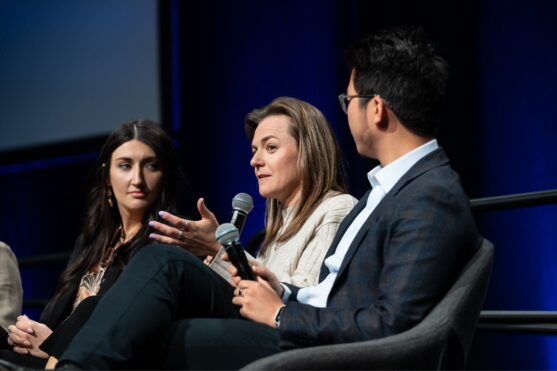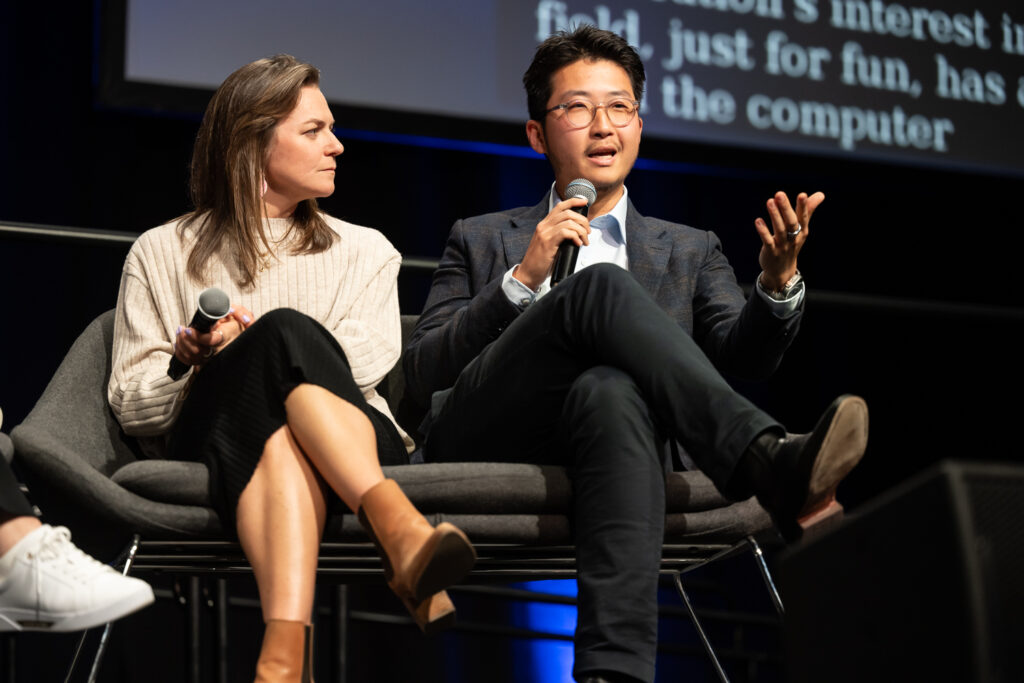New gen generosity: How are Gen Z and Millennials changing philanthropy?

New research highlights opportunities for the sector to engage and develop the Gen Z and Millennials cohort, who are ‘rewriting the rules of charitable giving’. Here, Bella Conyngham, Philanthropy Australia’s New Gen Network Lead, gives an overview of the findings from the US organisation Foundation Source – and how they apply to the Australian setting.
How do we engage the next generation in philanthropy? The age-old question can send not-for-profits (NFPs), financial advisers and family into spirals – and like a pendulum, many swing between over-doing it and dismissing the idea before giving it a real chance. However, new data from Foundation Source, aggregating insights from over 1,000 Gen Z and Millennial donors, highlights that New Gen attitudes, perceptions and even the language they use around philanthropy differ significantly from previous generations. If you work with younger givers/investors it is important to understand these shifts.
Key insights from Foundation Source report include:
- Perception matters: Both Gen Z (born 1997-2012) and Millennials (born 1981-1996) are keen to be recognised as “givers”, “volunteers”, “advocates”, “humanitarians”, with less identifying with the word “philanthropist” and “altruist”. We know that Gen Z, in particular, aims to be active drivers of transformation in society because 70% of them aim to be labelled as “changemakers”.
- Motivating factors: For these younger generations, involvement in charitable activities is primarily driven by family influence, a deep passion for specific causes and a desire to support their local communities. Interestingly, religion and spirituality were voted as the lowest drivers for giving.
- Early engagement: Millennials typically began engaging in charitable efforts at around 18 years old, with Gen Z starting even earlier, at an average age of 14.
- Belief in giving beyond financial means: The younger generation are often giving in a suite of ways, rather than only treasure to make an impact, given that their financial resources are generally lower than older generations. They view a variety of actions such as giving time, skills and knowledge as a reflection of their dedication to social change.
- Gender differences: The report showed that women are generally more focused on making a meaningful impact on causes and upholding family values, while men are more inclined to create or sustain a legacy.
These insights broadly overlap with what we understand of many new gen donors in Australia. During the New Gen panel at Philanthropy Australia’s 2024 Conference, speakers referenced the need to re-brand what it means to be a philanthropist and called upon the need to depart from antiquated stereotypes.
“We’re seeing similar attitudes here in Australia among the new gen cohort. Younger donors are eager to engage in meaningful ways that go beyond traditional financial giving, with many not even identifying with the term ‘philanthropist’. Instead, they see themselves as active drivers of change, wanting to be more hands-on and less passive in their involvement with charities. This shift presents an exciting opportunity for both families and organisations to re-imagine how they approach philanthropy and engage the next generation,” said Tyson Fenay, Philanthropy Australia board member and Chair of the New Gen Network.

As we approach the largest intergenerational wealth transfer in Australia, in time Gen Z and Millennials are set to become key players in shaping the future of philanthropy. Acting on what we know of these younger generations is a fantastic way to ensure that younger givers/investors have the opportunity to understand the responsibility of inheriting and stewarding wealth while bringing their passion and energy to social and environmental change.
For families, it’s essential to harness the unique strengths and passions of younger philanthropists. Bring rising generations into the planning, governance and decision-making processes where you can. By connecting younger family members with mentors and involving them in diverse grant-making initiatives, we can help them engage with causes that matter to them – without expecting them to share the perspectives and preferences of older generations. This sense of ownership will allow them to craft their own giving identity early on in their journey.
For not-for-profits, the focus should be on building multi-generational engagement, offering opportunities that resonate with younger generations. Exploring using tools that enable collective philanthropy and community building such as giving circles, that allow them to use their skills and networks alongside supporting causes they care about, is crucial in fostering long-term relationships.
For advisers, the key is facilitating discussions around family philanthropy and helping clients align their charitable activities with personal values, across generations. It’s also about educating younger clients on broader topics such as impact investing and non-financial giving, not just strategic giving vehicles. Consider whether younger members of a family with an established history of philanthropy want to take a different approach altogether in their personal giving, as compared to those establishing their family giving, either from inheritance or from their own self-made wealth.
Engaging the new generation of donors requires philanthropic organisations – foundations, advisers, and non-profits – to shift their approach. It starts by not speaking their language, using terms and concepts that resonate with how younger donors see their role in social impact, and not assuming that they will have the same giving goals as preceding family members.
As one of the most diverse generations ever, it’s crucial to craft inclusive messages and stories that connect with varied backgrounds and perspectives. Building lasting relationships is equally vital. With many young people beginning their philanthropic journey earlier than ever, organisations should focus on involving the entire family, offering learning opportunities and creating experiences that foster long-term relationships and loyalty that spans multiple generations.
Further resources:
- At the 2024 Philanthropy Australia Conference, themed Shifting Practice Shifting Perspectives, a panel of new-gens shared their perspectives on the challenges and opportunities of the inter-generational wealth transfer. Watch the recording.
- In August 2024 Kristen Lark, CEO of The Funding Network Australia wrote about new trends in giving favour disruptors and causes over established charities.
- Philanthropy Australia leads a community for newer and emerging philanthropists. Read more about the New Generation of Giving (New Gen) Network here.
- For more tips on engagement with new gen donors read my LinkedIn article.